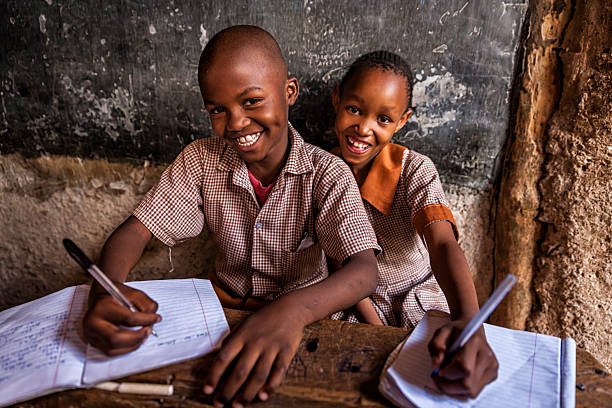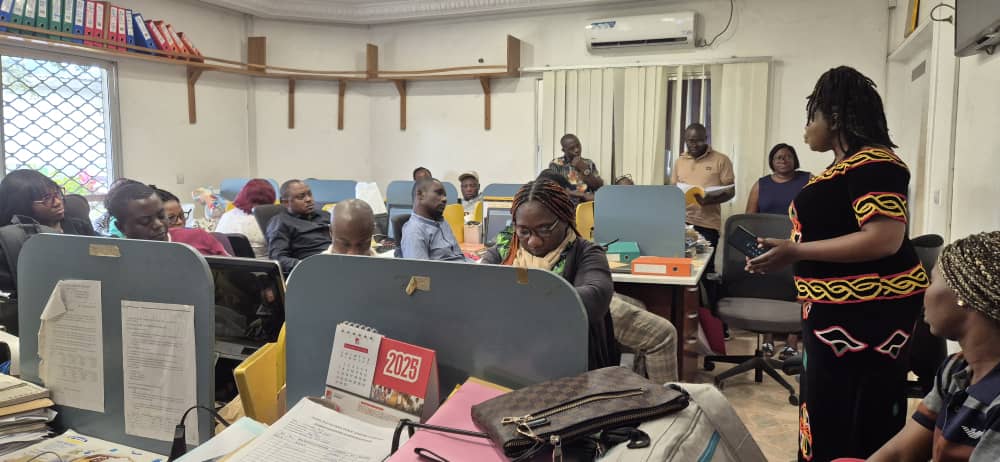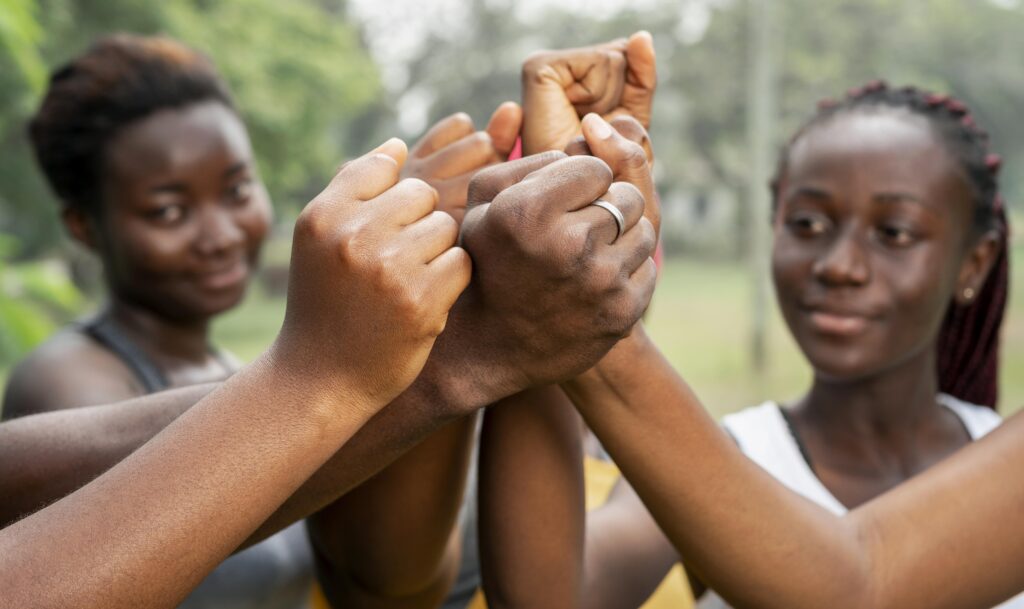Gender equality is not just a human rights issue; it’s also an essential factor in driving sustainable economic growth. Across Africa, women and girls are key contributors to the workforce, families, and communities, yet they face significant barriers to fully participating in economic activities. From limited access to education and healthcare to gender-based violence and societal norms, women often encounter challenges that prevent them from reaching their full potential.
Gap Bridger’s Africa (GABA) is committed to addressing these issues by empowering women and girls through comprehensive programs that promote gender equality, economic independence, and leadership. This article will explore the critical role gender equality plays in Africa’s economic growth and highlight GABA’s efforts to foster an environment where women can thrive.
Understanding Gender Equality and Economic Growth
Gender equality refers to the equal treatment and opportunities for women and men in all aspects of life. When women are given the same opportunities as men to participate in education, healthcare, work, and decision-making, entire economies benefit. Studies have shown that countries with higher gender equality experience faster economic growth, improved productivity, and greater innovation.
In Africa, where many economies are still developing, gender equality is particularly crucial. Women make up more than half of the continent’s population and are heavily involved in sectors like agriculture, education, and healthcare. However, without equal access to resources, education, and financial opportunities, the full potential of these women is not realized, limiting economic progress.
The Barriers Women Face in Africa
Despite significant advancements in some regions, African women continue to face barriers that limit their economic participation:
- Lack of Education: In many African countries, girls are less likely than boys to complete primary and secondary education. This educational gap limits their job prospects and earning potential later in life.
- Limited Access to Financial Services: Women, particularly in rural areas, often lack access to credit, savings, and other financial services, making it difficult for them to start or grow businesses.
- Gender-Based Violence and Discrimination: Many women face violence and discrimination in both personal and professional settings, which severely limits their ability to pursue economic opportunities.
- Traditional Gender Roles: In many cultures, women are expected to prioritize household duties and childcare, leaving them little time or support to pursue careers or education.
Overcoming these barriers is critical to unlocking Africa’s full economic potential. By empowering women and ensuring they have the same opportunities as men, we can drive economic growth that benefits everyone.
How Gender Equality Boosts Economic Growth
The benefits of gender equality extend far beyond individual women; when women are empowered, the entire economy thrives. Here’s how:
1. Increased Workforce Participation
When more women are part of the workforce, it increases overall productivity and contributes to higher economic growth. According to the World Bank, eliminating gender-based barriers in the workforce could boost Africa’s collective GDP by over $300 billion by 2025. In fields like agriculture, education, and healthcare, where women are heavily represented, empowering women can lead to significant economic gains.
2. Improved Productivity
Women in Africa are often key contributors to the agricultural sector, which employs nearly 70% of the continent’s workforce. However, due to gender disparities in access to resources like land, credit, and training, female farmers typically produce less than their male counterparts. When women are given equal access to resources, their productivity increases, which leads to greater food security and economic stability.
3. Better Health and Education Outcomes
Gender equality in education and healthcare leads to better outcomes for entire communities. When girls are educated, they are more likely to earn higher incomes, have healthier families, and invest in their children’s education. This creates a positive cycle of growth and development that benefits future generations.
4. Innovation and Entrepreneurship
Empowering women to become entrepreneurs fosters innovation and drives economic growth. Women bring unique perspectives and skills to business ventures, often focusing on industries and sectors that are underserved. By supporting women entrepreneurs, we can diversify economies and promote sustainable development.
How GABA is Empowering Women and Girls
Gap Bridger’s Africa (GABA) is dedicated to advancing gender equality and empowering women and girls across the continent. Our programs focus on breaking down the barriers that limit women’s economic participation and creating opportunities for them to thrive. Here’s how we’re making a difference:
1. Access to Education for Girls
Education is the foundation for gender equality. GABA’s education programs focus on ensuring that girls have equal access to education at all levels. We provide scholarships, build schools, and supply learning materials in underserved areas, making education accessible to girls who might otherwise be left behind.
Additionally, we work with communities to raise awareness about the importance of girls’ education and to challenge cultural norms that prioritize boys’ education over girls’. By keeping girls in school, we give them the tools they need to pursue meaningful careers and contribute to the economy.
2. Empowering Women Entrepreneurs
Entrepreneurship is a powerful tool for economic empowerment, and GABA is committed to supporting women entrepreneurs through microfinance programs and business training. We provide small loans and grants to women who want to start or grow their businesses, giving them the financial resources they need to succeed.
In addition to financial support, we offer mentorship and training to help women build sustainable businesses. From market access to product development, we equip women with the skills they need to thrive in competitive markets.
3. Advocating for Women’s Rights and Protection
GABA is a strong advocate for women’s rights and works to combat gender-based violence and discrimination. We collaborate with governments, local organizations, and international bodies to promote policies that protect women from violence and ensure equal rights in the workplace and society.
Our awareness campaigns educate communities about the importance of gender equality and challenge harmful cultural norms. We also provide resources and support for survivors of gender-based violence, helping them rebuild their lives and pursue economic independence.
4. Leadership and Decision-Making
GABA believes that women should play a key role in decision-making processes at all levels of society. We offer leadership development programs that empower women to take on leadership roles in their communities, businesses, and governments.
By increasing women’s representation in leadership, we create more inclusive policies that promote equality and drive sustainable economic growth. Women leaders also serve as role models, inspiring the next generation of girls to aspire to positions of influence.
Success Stories: Women Empowered by GABA
The impact of GABA’s programs can be seen in the success stories of women across Africa. Here are just a few examples of how our initiatives are transforming lives:
Amina’s Story: From Farmer to Entrepreneur
Amina, a farmer in rural Kenya, struggled for years to provide for her family. With limited access to resources, her crop yields were low, and she often relied on inconsistent income from seasonal work. Through GABA’s microfinance program, Amina received a small loan to expand her farming operations. She was also trained in sustainable farming practices, which increased her productivity and allowed her to sell her crops at local markets. Today, Amina is not only a successful farmer but also a community leader, advocating for other women in her village to pursue entrepreneurship.
Fatima’s Story: Breaking Barriers in Education
Fatima grew up in a community where girls’ education was not prioritized. Many girls in her village were married off at a young age, and opportunities for higher education were scarce. With support from GABA’s scholarship program, Fatima was able to complete her secondary education and pursue a degree in education. She now works as a teacher, inspiring other girls in her community to pursue their dreams and break the cycle of poverty through education.
Conclusion: The Path Forward
Gender equality is not just a moral imperative; it’s also a powerful driver of economic growth. By empowering women and girls, we can unlock Africa’s full potential and create more resilient, inclusive economies. Gap Bridger’s Africa (GABA) is committed to advancing gender equality through education, entrepreneurship, advocacy, and leadership development.
As we continue our work, we invite you to join us in building a future where every woman and girl has the opportunity to thrive. Together, we can break down the barriers to gender equality and drive sustainable economic growth across Africa.



